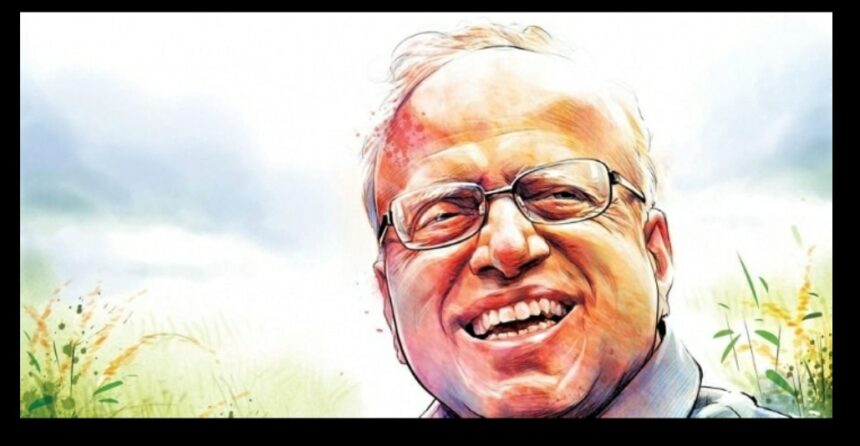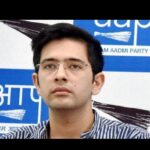The Father of the Indian Green Revolution guided our nation towards tone- adequacy and tone- confidence. He did everything with the planter at heart — as a true Kisan Vaigyanik A many days ago we lost Professor M S Swaminathan.
Our nation lost a visionary who revolutionised agrarian wisdom, a stalwart whose donation to India will always be etched in golden letters. Professor Swaminathan loved India and wanted our nation and our growers, in particular — to lead a life of substance. Academically brilliant, he could have chosen any career but he was so impacted by the Bengal shortage of 1943 that he was clear that, if there was one thing he’d do, it would be to study husbandry. At a fairly youthful age, he came in contact with Dr Norman Borlaug and followed his work in great detail.
In the 1950s, he was offered a faculty position in the US but he rejected it because he wanted to work in India and for India. I want you all to suppose about the grueling circumstances in which he stood as a giant, guiding our nation towards the path of tone- adequacy and tone- confidence. In the first two decades after Independence, we were dealing with immense challenges — one of them was food dearths. In the early 1960s, India was scuffling with the portentous murk of shortage and it was also that Professor Swaminathan’s unyielding commitment and foresight steered a new period of agrarian substance.
His pioneering work in husbandry and specific sectors like wheat parentage led to a significant increase in product, turning India from a food-deficient country into a tone- sufficient nation. This tremendous achievement earned him the well-conditioned justified title of the ‘ Father of the Indian Green Revolution ’. My particular relations with Professor Swaminathan were expansive. They began after I took over as Chief Minister of Gujarat in 2001.
During those days, Gujarat wasn’t known for its agrarian prowess. consecutive famines, a super cyclone and an earthquake had impacted the growth line of the state. Among the numerous enterprise we launched was the Soil Health Card, which enabled us to understand the soil more and address problems if they arose. It was in the environment of this scheme that I met Professor Swaminathan. He appreciated the scheme and also participated his precious inputs for it.
His countersign was enough to move those who were sceptical about the scheme which would ultimately set the stage for Gujarat’s agrarian success. The Kural describes growers as the leg that holds the world together, because it’s the growers who sustain everyone. Professor Swaminathan understood this principle veritably well. A lot of people call him a “ Krishi Vaigyanik ” — an Agrarian Scientist. But I’ve always believed that he was indeed more. He was a true “ Kisan Vaigyanik ” — a Farmers ’ Scientist. In his heart there was a planter.
The success of his workshop isn’t confined to their academic excellence; it lies in the impact they’ve had outside the laboratories, in the granges and the fields. His work narrowed the gap between scientific knowledge and its practical operation. He constantly supported for sustainable husbandry, emphasising the delicate balance between mortal advancement and ecological sustainability. Then, I must also note Professor Swaminathan’s special emphasis on perfecting the lives of small growers and icing they also enjoy the fruits of invention. He was particularly passionate about perfecting the lives of women growers.
There’s another aspect about Professor Swaminathan which is remarkable he stands altitudinous as a eidolon of invention and mentorship. When he won the World Food Prize in 1987, the first philanthropist of this prestigious honour, he used the prize plutocrat to establish a not- for- profit exploration foundation. Till date, it undertakes expansive work across colorful sectors. He has nurtured innumerous minds, breeding in them a passion for literacy and invention. In a fleetly changing world, his life reminds us of the enduring power of knowledge, mentorship, and invention. He was an institution builder as well, having to his credit numerous centres where vibrant exploration takes place. One of his stints was as Director, International Rice Research Institute, Manila.
The South Asia Regional Centre of the International Rice Research Institute was opened in Varanasi in 2018. I’ll again cite the Kural to pay paeans to Dr Swaminathan. It’s written there, “ If those who have planned have firmness, they will attain what they’ve asked the way they’ve asked . ” Then was a stalwart who decided beforehand on in his life that he wanted to strengthen husbandry and serve growers. And, he did it exceptionally innovatively and passionately. Dr Swaminathan’s benefactions continue to inspire and guide us as we navigate the path of agrarian invention and sustainability. We must also keep reaffirming our commitment to the principles he held dear — backing the cause of growers and icing that the fruits of scientific invention reach the roots of our agrarian breadth, fostering growth, sustainability, and substance for generations to come.
A many days ago we lost Professor M S Swaminathan. Our nation lost a visionary who revolutionised agrarian wisdom, a stalwart whose donation to India will always be etched in golden letters. Professor Swaminathan loved India and wanted our nation and our growers, in particular — to lead a life of substance. Academically brilliant, he could have chosen any career but he was so impacted by the Bengal shortage of 1943 that he was clear that, if there was one thing he’d do, it would be to study husbandry. At a fairly youthful age, he came in contact with Dr Norman Borlaug and followed his work in great detail.
In the 1950s, he was offered a faculty position in the US but he rejected it because he wanted to work in India and for India. I want you all to suppose about the grueling circumstances in which he stood as a giant, guiding our nation towards the path of tone- adequacy and tone- confidence. In the first two decades after Independence, we were dealing with immense challenges — one of them was food dearths. In the early 1960s, India was scuffling with the portentous murk of shortage and it was also that Professor Swaminathan’s unyielding commitment and foresight steered a new period of agrarian substance.
His pioneering work in husbandry and specific sectors like wheat parentage led to a significant increase in product, turning India from a food-deficient country into a tone- sufficient nation. This tremendous achievement earned him the well-conditioned justified title of the ‘ Father of the Indian Green Revolution ’. The Green Revolution offered a regard of India’s ‘ Can do spirit ’ — that if we’ve a billion challenges, we also have a billion minds with the honey of invention to overcome those challenges. Five decades after the Green Revolution began, Indian husbandry has come far more ultramodern and progressive.
But the very foundations laid by Professor Swaminathan can noway be forgotten. Over the times, he shouldered introducing exploration in combating spongers affecting the potato crop. His exploration also enabled potato crops to repel cold rainfall. moment, the world is talking about millets or ‘ Shree Anna ’ as superfoods, but Professor Swaminathan had encouraged a converse around millets since the 1990s. My particular relations with Professor Swaminathan were expansive. They began after I took over as Chief Minister of Gujarat in 2001. During those days, Gujarat wasn’t known for its agrarian prowess. consecutive famines, a super cyclone and an earthquake had impacted the growth line of the state.
Among the numerous enterprise we launched was the Soil Health Card, which enabled us to understand the soil more and address problems if they arose. It was in the environment of this scheme that I met Professor Swaminathan. He appreciated the scheme and also participated his precious inputs for it. His countersign was enough to move those who were sceptical about the scheme which would ultimately set the stage for Gujarat’s agrarian success. Our relations continued during my principal clerical term and also when I took over as Prime Minister.
I met him at the International Agrobiodiversity Congress in 2016 and the coming time, in 2017, I launched a two- part book series written by him.
The Kural describes growers as the leg that holds the world together, because it’s the growers who sustain everyone. Professor Swaminathan understood this principle veritably well. A lot of people call him a “ Krishi Vaigyanik ” — an Agrarian Scientist. But I’ve always believed that he was indeed more. He was a true “ Kisan Vaigyanik ” — a Farmers ’ Scientist. In his heart there was a planter. The success of his workshop isn’t confined to their academic excellence; it lies in the impact they’ve had outside the laboratories, in the granges and the fields.
His work narrowed the gap between scientific knowledge and its practical operation. He constantly supported for sustainable husbandry, emphasising the delicate balance between mortal advancement and ecological sustainability. Then, I must also note Professor Swaminathan’s special emphasis on perfecting the lives of small growers and icing they also enjoy the fruits of invention.
He was particularly passionate about perfecting the lives of women growers. There’s another aspect about Professor Swaminathan which is remarkable he stands altitudinous as a eidolon of invention and mentorship. When he won the World Food Prize in 1987, the first philanthropist of this prestigious honour, he used the prize plutocrat to establish a not- for- profit exploration foundation. Till date, it undertakes expansive work across colorful sectors. He has nurtured innumerous minds, breeding in them a passion for literacy and invention. In a fleetly changing world, his life reminds us of the enduring power of knowledge, mentorship, and invention. He was an institution builder as well, having to his credit numerous centres where vibrant exploration takes place. One of his stints was as Director, International Rice Research Institute, Manila.
Source: www.indianexpress.com
The South Asia Regional Centre of the International Rice Research Institute was opened in Varanasi in 2018. I’ll again cite the Kural to pay paeans to Dr Swaminathan. It’s written there, “ If those who have planned have firmness, they will attain what they’ve asked the way they’ve asked . ” Then was a stalwart who decided beforehand on in his life that he wanted to strengthen husbandry and serve growers. And, he did it exceptionally innovatively and passionately.
Dr Swaminathan’s benefactions continue to inspire and guide us as we navigate the path of agrarian invention and sustainability. We must also keep reaffirming our commitment to the principles he held dear — backing the cause of growers and icing that the fruits of scientific invention reach the roots of our agrarian breadth, fostering growth, sustainability, and substance for generations to come.
For more information visit at https://happenrecently.com/zepto/?amp=1



